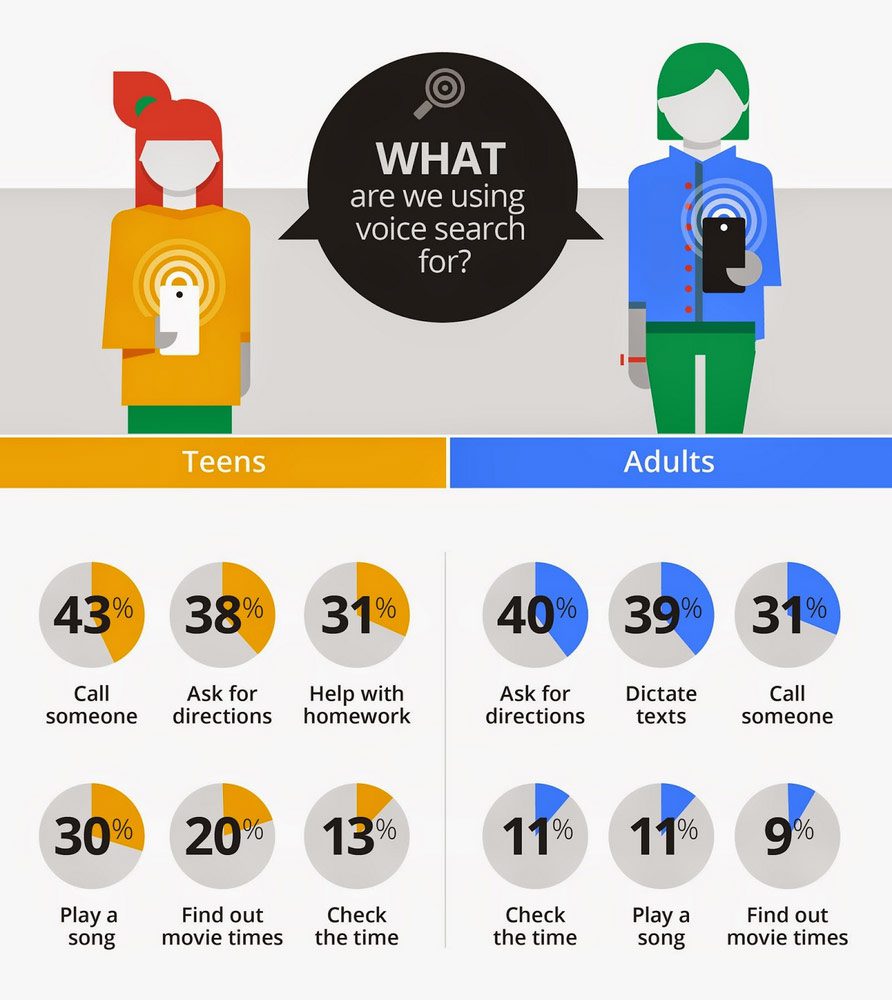SEO in the Age of Voice Search
SEO, although born as an idea a few years before the world’s largest search engine was established, has been of more concern to us since 1997, when Google registered its domain.
Since then the concept of SEO is intertwined with Google’s evaluation of the content of web pages and is based on some rules.
These rules were a result of Google’s opportunity to first implement updates to its ranking algorithm that favored and rewarded quality and relevant content in order to improve the user experience.

So what is SEO?
A decade ago, a simplistic answer to this question would have been that it was a relationship between a word or phrase and an internet search.
Today, organic website traffic and online purchases from e-shops are largely based on a complex algorithm for evaluating and ranking results.
In addition, programs that introduced voice command and voice-to-text, such as Siri and Alexa, have replaced the traditional way of using a search engine for many users, changing the way SEO works as well.
For this reason, the optimization of the content of a website should probably be reshaped and adapted to the new data in order not to lose a large part of its visitors.
How Does Voice Search Work?
First of all, a distinction should be made between the two technologies related to voice search:
- One technology is based on the recording of a relevant word or phrase, which is transcribed into the search bar and reveals a series of results on Google.
- The second technology is about the voice command that activates a specific function in the software of a digital assistant, such as Siri, Alexa or Google Assistant.
It will prove difficult for most websites to achieve the necessary optimization if they target both technologies at the same time.
It’s worth noting that not all “smart” devices are meant to implement this technology, so SEO based on voice searches won’t completely revolutionize a page’s traffic.
Simply put, investing in voice search SEO comes down to the goals a business sets, based on the needs of its existing and potential customers.
For example, if a business’s audience is users of smart mobile devices it should know that:
- Mobile users are 3x more likely to use voice search.
- 31% of smartphone users worldwide use voice search at least once a week.
- Mobile voice search statistics show that 55% of teenagers use voice search every day.
Voice Commands and their Role
According to Google, since 2014 both teenagers and adults are asking their phone for directions and using it to bypass the hassle of a mobile device keyboard.

Restructuring the content of a website, which will aim for easy and fast results with voice search, will not have the same weight or utility for all businesses.
The number of voice-enabled devices is constantly increasing, creating a need and opportunity for certain businesses to take advantage of the technology and this SEO trend to their advantage.
For example, businesses that have included the location of their headquarters, such as a coffee shop or restaurant, will greatly benefit from leveraging voice search.
Many internet users use a software like Siri every day to find the nearest stores and give a specific voice command related to what they are looking for.
Unlike if they used Google and typed a general word or phrase into the search bar, they would waste more time filtering through the hundreds of thousands of results. This would inevitably lead to a second and third search with more precise and relevant criteria.
However, voice search is not the Messiah or panacea that businesses are looking for to solve all their problems and skyrocket traffic to their websites.
Even businesses that have the best chance of being among the first results on Google would be unwise to rely entirely on this technology. They just need to realize that voice search plays a supporting role, not a primary one, at least for now.
The Evolution of Voice Control
Optimizing websites for voice commands is here to stay but it is still in its early stages. It offers a great advantage to the pioneers who will integrate it into the marketing strategy they already have.
According to statistics, it is expected that in 2021 the users of voice command assistants through software and through Google search will reach 5.1 billion and 6.4 billion in 2022.

According to Adobe research in 2019, 85% of users used voice command on their mobile, primarily for Google Maps and their navigation. Interesting facts are:
- 94% of smart device users agree that voice search technology will significantly improve their quality of life.
- 61% of users would not use this technology to navigate e-banking and other more complex web searches.
- On average, a voice search completes 70% successfully.
When it comes to “smart” home devices, and specifically smart speakers, their sales have skyrocketed in just two years. Nevertheless, their mass adoption will be slow mainly due to indistinct security and privacy rules and the differentiation of each language and dialect.
Google’s Coveted “Ground Zero”
What is “position zero” and how does it relate to voice search?
This is the first result on the search engine results page (SERP).
“Position zero” provides a significant competitive advantage to a business and is a goal of SEO.
Optimizing a website for voice search depends on the data collected by voice command devices and digital assistants.
Successful voice search depends on valid and up-to-date profiles of the companies on the various platforms, from which the “smart” applications and functions draw information.
Is voice search worth implementing to promote a business to “position zero”?
It depends on the goal of the business. It should be emphasized again that it works in addition to and not as a hindrance to the SEO that we have known until now.
Conclusion
Although “smart devices” and voice control software are increasingly integrated into our daily lives, they are still a small part of most people’s technology ecosystem.
Voice search is constantly growing and will soon be everywhere.
Consumer behavior is constantly changing and businesses need to be prepared to cope with new digital marketing trends to meet their customers’ expectations.
Tech giants like Google, Amazon and Microsoft have made significant progress and have already optimized voice search to have an edge over other types of search.
Optimizing SEO for voice search and monetizing this development will be crucial in the near future.